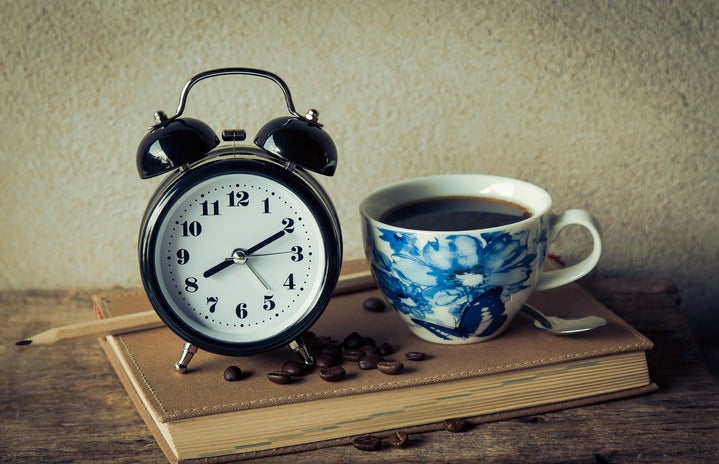I don’t know about everyone else, but it’s a struggle for me to wake up in the morning. Not only that, but once I’m awake, I feel like crashing shortly after. But there are things that I need to get done every day including classes, homework, working out, and so much more. Admit it, you go through this too.So, how can we stop dozing off?
The most obvious solution to tiredness is to get the right amount of sleep each night. But wait a second, more sleep isn’t always better. The National Sleep Foundation recommends that we college women get between seven and nine hours of sleep each night. Either less or more sleep than the recommended amount can lead to tiredness causing us to yawn and “rest our eyes” throughout the day. I know it can be difficult with a packed schedule, but keeping a consistent sleep schedule can benefit you in more ways than you’d expect.
I love to nap (who doesn’t?). But, it can be the silent killer. My usual nap is over an hour long. According to today.com however, naps should only be 10 to 20 minutes long because after that our brains go into the deepest stage of sleep. When we wake up following deep sleep, we can feel groggy and out-of-it, instead of energized. Sometimes feeling even worse than before the nap. Naps can be the answer to a tiring day because if done correctly, it won’t take a lot of time out of your day. Indulge yourselves!
So what causes students to not be able to stay awake during class? According to quora.com, lack of variation in lectures, warm room temperatures, and full tummies can all put students to sleep. I’ve definitely noticed these in myself. I try to interact and communicate with professors during classes to stay attentive and make the time less of a bore. Also, dressing comfortably. Try to wear an outfit that you know will keep you comfortable, but not ultra-snuggly like your favorite fleece blanket. Lastly, there are meals and snacks that can keep you satisfied, but not make you want to go into a food coma.
Everyday Health made a great list of foods to help keep you energized. My personal favorites were almonds, whole grains, peanut butter, bananas, and oatmeal. Notice though, that steaming cups of coffee and candy bars are not listed. Those choices can make you feel good fast, but can cause a crash soon after.
Nutrition is important in relation to fatigue, and exercise goes right along with it. A University of Georgia study found that 20 minutes of “low-to-moderate aerobic exercise” (a walk will do), can give you more energy. I mean how empowered and energized will you feel after doing a tough workout?
I know there are still going to be days when the only solution is to crawl into bed, but hopefully these tips can make them more of a rarity.


